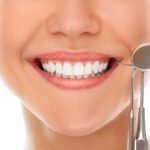Table of Contents
The Benefits of Proper Chewing for Oral Health
Proper chewing plays a crucial role in maintaining optimal oral health. When food is thoroughly chewed, it aids in the initial breakdown of nutrients, facilitating the digestion process. Additionally, adequate chewing promotes saliva production, which helps neutralize acids in the mouth and prevent tooth decay. By taking the time to chew food properly, individuals can reduce the risk of developing oral health issues such as cavities and gum disease.

Furthermore, engaging in proper chewing techniques can promote jaw strength and muscle coordination, leading to improved overall oral function. Strong jaw muscles are vital for activities like speaking and swallowing, highlighting the importance of incorporating mindful chewing practices into daily routines. Developing disciplined chewing habits can benefit individuals of all ages, fostering not only oral health but also contributing to their general well-being.
The Role of Chewing in Digestion
Chewing is a crucial initial step in the process of digestion. When we chew our food, it gets broken down into smaller particles, making it easier for the digestive enzymes in our saliva to start breaking down carbohydrates. This pre-digestive process facilitates better absorption of nutrients in the small intestine and can help prevent digestive issues such as bloating and indigestion.

Moreover, thorough chewing also signals to the stomach that food is on its way, triggering the release of gastric juices and digestive enzymes that further break down the food. This efficient breakdown of food in the mouth and stomach sets the stage for optimal digestion in the intestines, ensuring that nutrients are properly absorbed into the bloodstream to support overall health and well-being.
The Importance of Chewing for Nutrient Absorption
Chewing plays a crucial role in the process of nutrient absorption within our bodies. The mechanical breakdown of food through chewing is the first step in proper digestion. When we thoroughly chew our food, it is broken down into smaller particles, allowing for easier digestion and absorption of nutrients in the small intestine. This process makes it more efficient for our bodies to extract essential vitamins, minerals, and other nutrients from the food we consume, supporting overall health and well-being.
Inadequate chewing can lead to larger food particles entering the digestive system, which may hinder the absorption of nutrients. This can result in potential nutrient deficiencies, impacting various bodily functions and overall health. By taking the time to chew food properly, we can aid in the breakdown of nutrients, optimize their absorption, and contribute to better digestive health.
How Chewing Affects Dental Health
Chewing plays a vital role in maintaining optimal dental health. The act of chewing helps stimulate saliva production, which in turn helps in the remineralization of tooth enamel and acts as a natural defense against harmful bacteria. Additionally, proper chewing aids in the mechanical removal of food particles that may get stuck in between teeth or in crevices, reducing the risk of plaque buildup and cavities.

Moreover, the pressure exerted during chewing helps strengthen the jawbone and surrounding tissues, promoting overall oral health and stability. By engaging in thorough and deliberate chewing motions, individuals can enhance their dental health by ensuring that food is properly broken down before swallowing, reducing the burden on teeth and aiding in the digestive process. Regularly practicing good chewing habits can significantly contribute to maintaining strong and healthy teeth for years to come.
The Relationship Between Chewing and Saliva Production
Chewing plays a vital role in stimulating saliva production, which is essential for maintaining good oral health. Saliva serves as the body’s natural mouth cleanser, helping to wash away food particles, bacteria, and debris that can lead to tooth decay and gum disease. When you chew, your salivary glands are triggered to release saliva, which contains enzymes that begin the digestive process and neutralize acids in the mouth, leading to a healthier oral environment.
Furthermore, saliva production is crucial for maintaining proper pH levels in the mouth, which can help prevent the demineralization of tooth enamel and reduce the risk of cavities. Through the mechanical action of chewing, saliva is distributed evenly throughout the mouth, aiding in the remineralization of teeth and providing a protective barrier against harmful bacteria. By ensuring adequate saliva flow through effective chewing habits, individuals can support their overall oral health and reduce the likelihood of developing oral health issues.
Tips for Improving Chewing Technique
To improve your chewing technique and promote better oral health, it is essential to focus on proper jaw movement and thorough mastication. One effective tip is to chew slowly and deliberately, allowing each bite to be broken down into smaller pieces before swallowing. This not only aids in digestion but also reduces the workload on the digestive system and prevents potential issues such as indigestion. Additionally, chewing on both sides of the mouth evenly can help distribute the forces exerted on the teeth, leading to a more balanced jaw motion and minimizing strain on specific areas.
| Technique | Description |
|---|---|
| Chew Slowly | Take your time when chewing food. Aim for about 20 to 30 chews per bite to help break down food effectively. |
| Chew with Mouth Closed | Keep your mouth closed while chewing to prevent air from entering the digestive system, reducing discomfort and aiding digestion. |
| Chew with Both Sides | Utilize both sides of your mouth evenly to distribute the workload and promote balanced muscle development. |
| Pay Attention to Texture | Be mindful of the texture of the food you’re chewing. Different textures may require different chewing techniques. |
| Practice Mindful Eating | Focus on the act of chewing and the sensations of taste, texture, and aroma to enhance the overall eating experience. |
| Take Small Bites | Cut your food into smaller pieces to facilitate thorough chewing and aid digestion. |
| Sit Upright When Eating | Maintain good posture while eating to allow for optimal jaw movement and digestion. |
| Avoid Distractions | Minimize distractions such as watching TV or using electronic devices to stay mindful and focused on chewing. |
Furthermore, practicing mindful chewing by being fully present and attentive while eating can enhance the overall eating experience and assist in recognizing feelings of fullness, aiding in portion control. It is advisable to avoid multitasking or rushing through meals, as this can lead to inadequate chewing and poor digestion. Engaging in this mindful eating practice not only supports better digestion and absorption of nutrients but also encourages a deeper connection with the food being consumed, promoting overall well-being and satisfaction.
Common Mistakes to Avoid While Chewing
When it comes to chewing, there are several common mistakes that many people make without even realizing it. One major error is not taking the time to thoroughly chew food before swallowing. In our fast-paced world, many individuals rush through meals, leading to inadequate chewing. This hasty eating can put unnecessary strain on the digestive system and hinder proper nutrient absorption.
Another mistake to avoid while chewing is not paying attention to the size of food portions. Taking overly large bites can overwhelm the teeth and jaw, making it difficult to chew effectively. Conversely, cutting food into smaller, more manageable pieces can aid in the chewing process and promote better digestion. Additionally, mindlessly chewing on hard objects such as ice or pen caps can damage teeth and increase the risk of dental issues. It’s important to be mindful of what goes into your mouth to protect both your oral health and overall well-being.
The Impact of Chewing on Overall Digestive Health
Chewing plays a crucial role in overall digestive health by initiating the breakdown of food particles into smaller, more manageable pieces. The mechanical action of chewing stimulates the production of saliva, which contains enzymes that kickstart the digestion process even before food reaches the stomach. Efficient chewing ensures that food is thoroughly mixed with saliva, aiding in the smooth passage of nutrients through the digestive tract.
| Aspect | Impact on Digestive Health |
|---|---|
| Chewing Food | Breaks down food into smaller particles, aiding in digestion |
| Saliva Production | Stimulates saliva production, which contains digestive enzymes |
| Mechanical Digestion | Initiates mechanical digestion by breaking down food physically |
| Nutrient Absorption | Facilitates nutrient absorption by preparing food for digestion |
| Gastric Emptying Rate | Slows down gastric emptying rate, promoting satiety |
| Gut Microbiome | May influence gut microbiome composition and function |
| Dental Health | Promotes dental health by stimulating saliva and cleaning teeth |
| Appetite Regulation | Helps regulate appetite by signaling satiety to the brain |
| Bowel Movement | Can improve bowel movement by promoting digestion |
| Overall Digestive Health | Contributes to overall digestive health and well-being |
Moreover, proper chewing promotes better nutrient absorption in the small intestine. When food is adequately broken down in the mouth, it becomes easier for the body to extract essential vitamins, minerals, and other nutrients during the digestion process. Inadequate chewing can lead to larger food particles entering the stomach and intestines, potentially hindering nutrient absorption and causing digestive discomfort. By emphasizing the importance of mindful chewing habits, individuals can proactively support their digestive health and enhance the overall efficiency of their gastrointestinal system.
Chewing Exercises to Strengthen Jaw Muscles
Engaging in specific chewing exercises can be beneficial in strengthening the muscles of the jaw, which play a crucial role in various oral functions. Jaw exercises such as simple jaw movements, resistance training, and incorporating chewy foods into your diet can help enhance muscle endurance and promote better overall oral health.
Regularly practicing these exercises can not only improve jaw strength but also aid in better chewing efficiency and coordination. Strong jaw muscles are essential for proper food breakdown, which in turn facilitates digestion and nutrient absorption. By incorporating these exercises into your daily routine, you can positively impact your oral health and overall well-being.
The Connection Between Chewing and Weight Management
Chewing plays a crucial role in weight management by aiding in the digestion and absorption of nutrients. The process of chewing food thoroughly allows for better breakdown of food particles, which in turn promotes optimal digestion. Research has shown that individuals who chew their food well tend to consume fewer calories compared to those who rush through their meals. This is because chewing slowly gives the brain more time to receive signals of fullness from the stomach, leading to a decreased risk of overeating.
Furthermore, the act of chewing stimulates saliva production, which contains enzymes that assist in the digestion of carbohydrates and fats. Adequate chewing also helps in releasing nutrients from food more efficiently, allowing the body to absorb essential vitamins and minerals. By adopting mindful eating habits and focusing on proper chewing techniques, individuals can support their weight management goals and overall health by improving nutrient absorption and promoting satiety.
Chewing as a Mindful Eating Practice
Mindful eating is a practice that involves paying full attention to the experience of eating and drinking, both in terms of the food itself and the act of chewing. This approach encourages individuals to focus on the sensory aspects of eating, such as taste, texture, and aroma, without distractions. Chewing food mindfully can enhance the overall dining experience by allowing individuals to savor and appreciate each bite fully.
By chewing food slowly and mindfully, individuals can better tune in to their body’s hunger and fullness cues, promoting healthy eating habits and preventing overeating. Engaging in mindful chewing can also improve digestion by breaking down food more effectively in the mouth, which aids in the absorption of nutrients in the digestive tract. Additionally, taking the time to chew food thoroughly can support better oral health by reducing the risk of dental issues such as cavities and gum disease.
Chewing and its Effect on Bad Breath
When it comes to bad breath, proper chewing plays a crucial role in oral health. Inadequate chewing can lead to food particles getting stuck in between teeth and around the gums, providing a breeding ground for bacteria that produce foul-smelling compounds. Ensuring thorough chewing of food promotes saliva production, which helps wash away food debris and bacteria, thus reducing the likelihood of developing bad breath.
Moreover, chewing fibrous foods like fruits and vegetables can act as natural toothbrushes, gently scrubbing the teeth and stimulating saliva production. This cleansing effect helps maintain a healthier oral environment and reduces the chances of bacteria buildup, which can contribute to halitosis. By incorporating mindful chewing habits into your daily routine, you can support fresher breath and overall oral hygiene.
The Role of Chewing in Preventing Tooth Decay
Chewing plays a crucial role in preventing tooth decay by promoting good oral health practices. The mechanical action of chewing helps in the removal of food particles and plaque from teeth surfaces, reducing the risk of bacteria buildup and cavities. Proper chewing also stimulates saliva production, which contains enzymes that aid in neutralizing harmful acids and protecting tooth enamel. By incorporating thorough chewing into your daily routine, you can contribute to maintaining a healthy and cavity-free smile.
Moreover, the act of chewing can act as a natural teeth-cleaning mechanism, especially when consuming fibrous and crunchy foods. These foods require more chewing, which in turn helps to scrub teeth surfaces and stimulate gum tissue. This process not only contributes to better oral hygiene but also strengthens the supporting structures of the teeth, reducing the likelihood of decay and gum disease. Emphasizing the importance of mindful and deliberate chewing can significantly impact your dental health and overall well-being in the long run.
Chewing and its Influence on Speech Development
Chewing plays a crucial role not only in maintaining oral health but also in influencing speech development in children. The process of chewing helps in strengthening the jaw muscles, which are essential for proper pronunciation and articulation of sounds. Children who have weak jaw muscles due to poor chewing habits may exhibit speech difficulties or delays in speech development.
Furthermore, the act of chewing also stimulates oral sensory receptors, which are vital for the coordination of movements required for speech production. When children chew their food thoroughly, they engage these receptors, leading to improved oral motor skills that are fundamental for clear and intelligible speech. Inadequate chewing can result in underdeveloped oral motor skills, affecting speech clarity and fluency. Encouraging proper chewing habits from a young age can significantly contribute to the overall development of a child’s oral and speech skills.
Chewing Habits to Teach Children for Lifelong Oral Health
Teaching children proper chewing habits is a crucial step in promoting lifelong oral health. By instilling good chewing practices early on, parents and caregivers can help children maintain healthy teeth and gums as they grow. Encouraging kids to chew their food thoroughly not only aids in breaking down food particles for easier digestion but also helps in preventing potential dental issues such as cavities and gum disease.
Children should be taught to take their time when chewing and to chew each bite thoroughly before swallowing. This not only promotes better digestion and nutrient absorption but also allows saliva to mix with the chewed food, aiding in the initial stages of digestion. Additionally, educating children on the importance of chewing can also help them develop stronger jaw muscles and improve their overall oral health. By making chewing a mindful practice, children can establish healthy habits that will benefit them throughout their lives.
How can parents encourage proper chewing habits in their children?
Parents can encourage proper chewing habits in their children by modeling good chewing techniques themselves, providing a variety of nutritious foods that require chewing, and praising their children when they chew their food thoroughly.
Is there a link between poor chewing habits and dental issues in children?
Yes, poor chewing habits can contribute to dental issues in children such as tooth decay, cavities, and malocclusion (misalignment of the teeth).
Can chewing exercises help children develop strong jaw muscles?
Yes, chewing exercises such as chewing sugar-free gum or crunchy foods can help children develop strong jaw muscles, which can improve their overall oral health.
How can mindful chewing practices benefit children’s eating habits?
Mindful chewing practices can help children slow down and savor their food, which can lead to better digestion, nutrient absorption, and overall healthier eating habits.
What role does chewing play in preventing bad breath?
Chewing stimulates saliva production, which helps wash away food particles and bacteria in the mouth that can cause bad breath. Proper chewing can also promote better oral hygiene, reducing the risk of halitosis.




